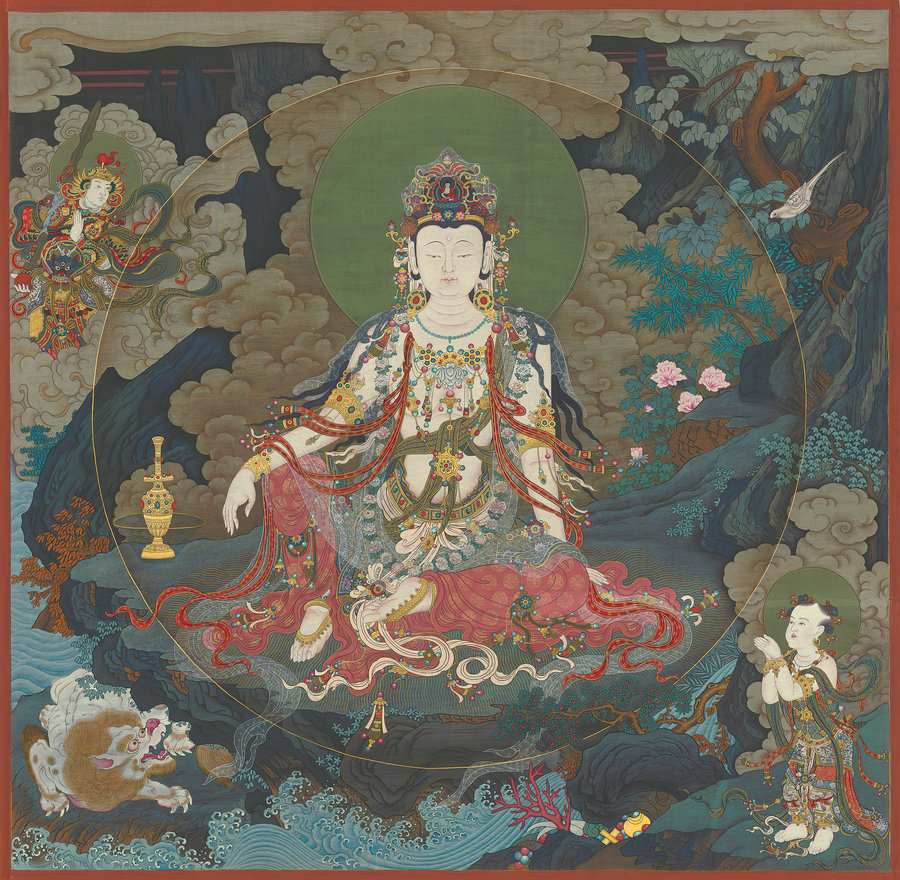

Samdrub Kyab, dressed in his traditional Tibetan robe, has been busy explaining to visitors the embroidered thangka works on display at Beihai Park, Beijing.
The man in his 20s flew all the way from Rangtang county, in the west of the Aba Tibetan and Qiang autonomous prefecture, Southwest China's Sichuan province in late March, to attend a grand exhibition jointly hosted by the county government and the Beijing Tourism Group that will last until Sunday.
"Some of the thangka works are made of three fabrics, such as silk and satin, and most of them feature Buddhas, auspicious lotus flowers and landscape scenery," Samdrub Kyab explains.
It's a demanding craft to create big Buddhist scroll paintings, which were named a national intangible cultural heritage in 2008.
They can cover an entire wall of temples or large ceremonial halls.
A medium-sized thangka that is about 60 centimeters in width and length takes Samdrub Kyab nine months to finish.
"First, the cloth has to be dyed with natural plant extractions, before being trimmed into various shapes, pasted and sewn back together," he says.
"Since everything is handmade, each thangka is one of a kind."
Samdrub Kyab's artworks are among more than 80 pieces of ethnic intangible cultural heritage, such as Tibetan embroidery, porcelain, paper and incense from the county, as well as more than 200 intangible cultural creative products at the exhibition.
The event aims to present the charm of the plateau and the distinctive style of the rich local intangible cultural heritage for residents in Beijing.
"Rangtang possesses rich intangible cultural heritage, which not only serves as a business card for Rangtang culture but also constitutes an important part of Chinese culture," says Sun Hongbin, the county's deputy Party secretary.
"Through this event, we hope to let more people understand and appreciate Rangtang, and experience the unique charm of local culture," Sun says.
During the exhibition, multiple cultural lectures, demonstrations of intangible cultural heritage skills, and local food promotion activities have been hosted to enable visitors to have a deeper understanding of what Rangtang has to offer.